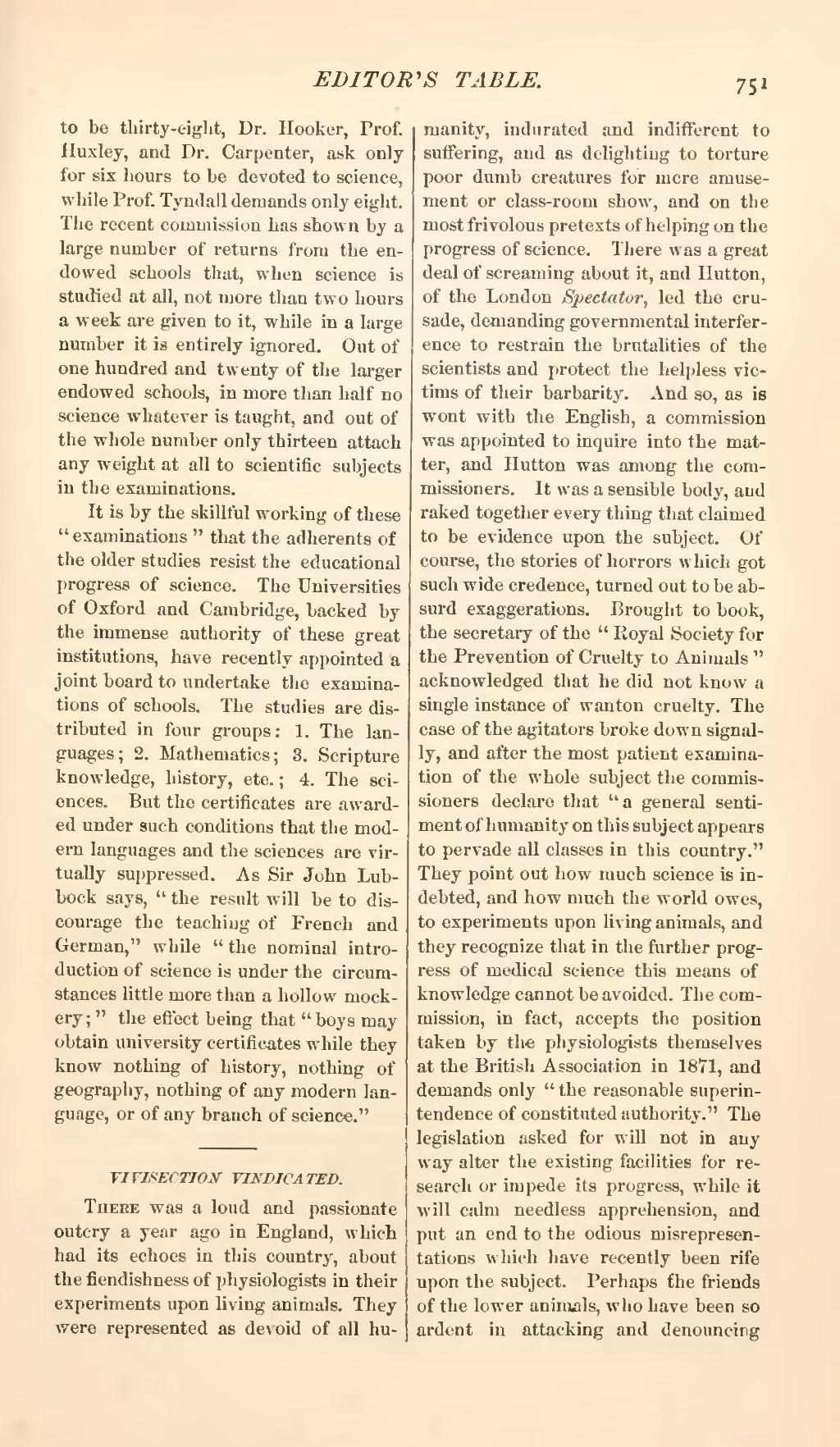to be thirty-eight, Dr. Hooker, Prof. Huxley, and Dr. Carpenter, ask only for six hours to be devoted to science, while Prof. Tyndall demands only eight. The recent commission has shown by a large number of returns from the endowed schools that, when science is studied at all, not more than two hours a week are given to it, while in a large number it is entirely ignored. Out of one hundred and twenty of the larger endowed schools, in more than half no science whatever is taught, and out of the whole number only thirteen attach any weight at all to scientific subjects in the examinations.
It is by the skillful working of these "examinations" that the adherents of the older studies resist the educational progress of science. The Universities of Oxford and Cambridge, backed by the immense authority of these great institutions, have recently appointed a joint board to undertake the examinations of schools. The studies are distributed in four groups: 1. The languages; 2. Mathematics; 3. Scripture knowledge, history, etc.; 4. The sciences. But the certificates are awarded under such conditions that the modern languages and the sciences are virtually suppressed. As Sir John Lubbock says, "the result will be to discourage the teaching of French and German," while "the nominal introduction of science is under the circumstances little more than a hollow mockery;" the effect being that "boys may obtain university certificates while they know nothing of history, nothing of geography, nothing of any modern language, or of any branch of science."
VIVISECTION VINDICATED.
There was a loud and passionate outcry a year ago in England, which had its echoes in this country, about the fiendishness of physiologists in their experiments upon living animals. They were represented as devoid of all humanity, indurated and indifferent to suffering, and as delighting to torture poor dumb creatures for mere amusement or class-room show, and on the most frivolous pretexts of helping on the progress of science. There was a great deal of screaming about it, and Hutton, of the London Spectator, led the crusade, demanding governmental interference to restrain the brutalities of the scientists and protect the helpless victims of their barbarity. And so, as is wont with the English, a commission was appointed to inquire into the matter, and Hutton was among the commissioners. It was a sensible body, and raked together every thing that claimed to be evidence upon the subject. Of course, the stories of horrors which got such wide credence, turned out to be absurd exaggerations. Brought to book, the secretary of the "Royal Society for the Prevention of Cruelty to Animals" acknowledged that he did not know a single instance of wanton cruelty. The case of the agitators broke down signally, and after the most patient examination of the whole subject the commissioners declare that "a general sentiment of humanity on this subject appears to pervade all classes in this country." They point out how much science is indebted, and how much the world owes, to experiments upon living animals, and they recognize that in the further progress of medical science this means of knowledge cannot be avoided. The commission, in fact, accepts the position taken by the physiologists themselves at the British Association in 1871, and demands only "the reasonable superintendence of constituted authority." The legislation asked for will not in any way alter the existing facilities for research or impede its progress, while it will calm needless apprehension, and put an end to the odious misrepresentations which have recently been rife upon the subject. Perhaps the friends of the lower animals, who have been so ardent in attacking and denouncing

